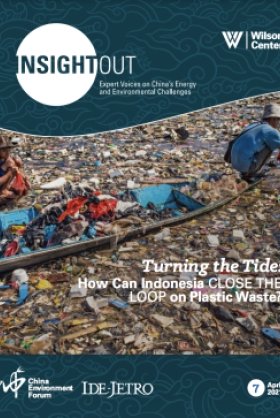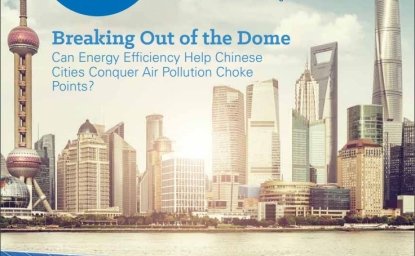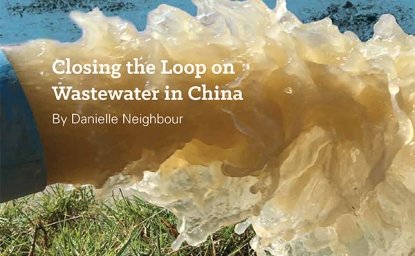InsightOut Issue 7 - Turning the Tide: How Can Indonesia Close the Loop on Plastic Waste?



With only 12 percent of single-use plastics being recycled, Indonesia is now second behind China as a source of ocean plastic -- responsible for 10 percent of global plastic leakage.
In the seventh issue of the China Environment Forum’s InsightOut series, we cast our net broadly to gather diverse voices into how Indonesia can close the loop on plastic waste. The stories here are told by Indonesian, Japanese, and American authors, who are a diverse mixture of government officials, grassroots activists, policy analysts, business representatives, and journalists. Often times, it is women who are at the heart of the battle to end plastic waste in Indonesia, we interviewed seven of these champions to highlight in Closed-Loop Innovators boxes throughout the publication.
While the stories shared here describe the many challenges and successes in Indonesia’s battle to reduce plastic waste, we hope that readers not only see the pressing impact of plastic leakage in Indonesia, but also the policy innovations, partnerships, financing, and community engagement that offer lessons for other Asian countries.
This publication is part of the China Environment Forum’s Turning the Tide on Plastic Waste in Asia initiative made possible with generous support from the Japan Foundation’s Center for Global Partnership.
Managing Editors: Eli J. Patton and Hazel Ruyi Li

China Environment Forum
China’s global footprint isn’t just an economic one, it’s an environmental one. From BRI investments in Africa and Asia to its growing presence in Latin America, understanding China’s motivations, who stands to gain - and who stands to lose - is critical to informing smart US foreign policy. Read more


Kissinger Institute on China and the United States
The Kissinger Institute works to ensure that China policy serves American long-term interests and is founded in understanding of historical and cultural factors in bilateral relations and in accurate assessment of the aspirations of China’s government and people. Read more

Explore More
Browse Insights & Analysis
InsightOut Series

